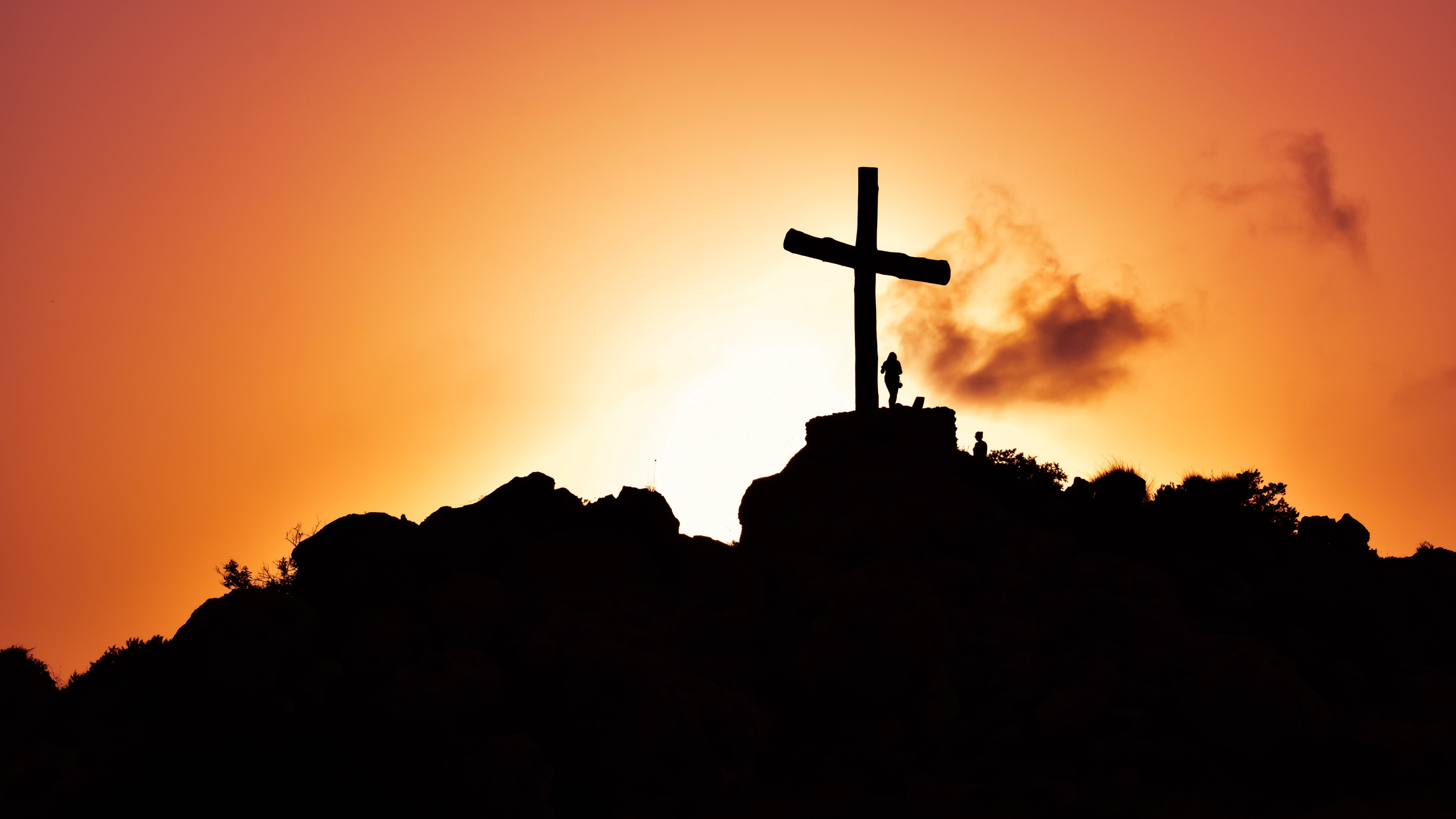|
by J. Edwards (17th August 2023)
I have been struggling with the problem of evil, lately. It’s come to the fore as a result of reading about the crucifixion of Jesus in the four Gospels. I kept asking, ‘Why? Why was it necessary for the most perfect man who ever walked on Earth to suffer this most cruel and agonizing death? Some theologian would say it was necessary for our ‘salvation,’ to reconcile a fallen human creation with a loving God. But couldn’t God have found another way to do that, rather than by offering Himself to die on the cross. It wasn’t only the crucifiction that was bothering me. It was also the whole problem of world-wide human suffering in our own day. We have the war in Ukraine, the ongoing suffering following the war in Iraq in 2003, and the conflict in Syria after that. Then we have all the refugees from Afghanistan, Syria, the Middle East and Africa seeking new life in Europe, many of them dying in the attempt, not to mention victims of violence, war, injustice, terrorist bombings and shootings the world over. I do have a tendency towards feeling depressed, and when I consider life as it is for so many people today, I have been asking myself, ‘What on earth is the point of it all? Why did God create a world in which so much suffering could affect so many people?’ And I haven’t even mentioned climate change. The answer came to me when I was out for a walk one evening. I realised that I needed to look back behind the cross, to the origins of humankind. It seemed to me that in the beginning, God’s plan and purpose was to create a being which would of itself be capable of doing good. A being who could love, to the extent that s/he would sacrifice herself, if need be, for those whom she loved. A being moreover who would, like God, be capable of creating beauty in terms of music and art, architecture and design. A creature who would enhance God’s creation by bringing love, joy, beauty into it, by the way s/he lived and by what s/he did. But in order for that to happen, human beings would have to be given the ability to choose between good and evil, to choose whether to be selfish or unselfish, to be cruel or to be kind. Human beings were designed to create a good world, but in order for that to happen, they had to be given the ability to choose the opposite, to unleash forces that could destroy the planet and millions of its inhabitants. And so, we had Hitler, Stalin, Putin, to name but three. And just part of the explanation of the suffering of Jesus on the cross is that here is God taking responsibility for that and in so doing demonstrating in the clearest possible way that God’s response to the brutality of a cruel world was to accept that cruelty himself, in the body of a human being. Yes, ‘God was in Christ, reconciling the world to himself.’ So much flows from this. But I will mention here, just two points. 1). To quote a phrase from a prayer of an African child, ‘Lord Jesus, I know that today, there will be nothing that will happen that you and I can’t handle.’ If Jesus could die on the cross in order to break the power of evil to rule the world, this Jesus who loves me and in whom I trust, will enable me to cope with whatever life brings here on Earth, and finally will bring me to himself when my time comes to depart. 2). Paul, to quote him again, said, ‘As in Adam all die, so in Christ shall all be made alive.’ (1 Corinthians 15:22). Just as humankind came into being by God, so this same God has authority to reconcile to himself all who have lived (regardless of what they believe) in a way that is acceptable to Him. (See Matthew 25, the parable of the sheep and the goats). This could lead on to a debate about heaven and hell, and who will be sent to the latter etc. I would recommend C. S. Lewis’s book, ‘The Great Divorce’. He suggests that ‘hell’ is simply a place that’s available as a dull alternative for people to escape to, people who feel that they feel unable to stand before God, because it would be too painful, so they would prefer to get away from God to a place where they can exist without having to experience the pain of His presence. In response to this, our aim must surely be so to live in the light of God’s grace on Earth, that we shall, by God’s grace, be enabled to stand before God in heaven.
0 Comments
by J. Edwards
Heaven is indescribable in terms of what it must be like to be there, and the reason for that is not difficult to understand. First, however, we must define how life exists on Earth. Albert Einstein described the Universe as existing in space-time. So, we are all confined to live in three-dimensional space and to move together along the same time line. So, for example, if I want to get from London to Edinburgh, it will take me, by road, seven and three-quarter hours to travel the 403 miles via the M1 and A1. Distance and time are constraining factors controlling all our lives; people who have relatives living in Australia, for example, have to make a huge commitment to take the time and make the journey to see them. Now, given what we understand about God, as Supreme Being, and knowing that Heaven is defined as the place where God is, how does space-time connect with this? In the New Testament, particularly, for example in the book of Revelation, people who dwell in Heaven are believed to live in space-time just as we do. And the Lord of all being is depicted as being enthroned, in one place at one time. Now the problem with all this is that it does not match up with what we know about God. For it’s impossible to believe that God is constrained in terms of distance and time as we are. This is clear from the resurrection appearances of Jesus in the Gospels, when he enters into the upper room through a locked door, and can come and go at will. The conclusion has to be that our existence in Heaven is not bounded by space-time. Because God is in all places within and beyond the universe at any one time, then so are all the inhabitants of Heaven. It’s hard even to define, because place and time have no meaning in eternity. So now we see that heaven is indescribable in terms that we can understand. How can we exist in a body that does not breathe and that does not move through space and time? How can there be music in Heaven, if there is no time? On a positive note, it is clear that each person in heaven is in constantly, continuously, in communication with God and with every other person in heaven, always. For me, this is what brings the Church’s teaching on the communion of saints to life. For they are all with God, and because God is near, they too are near to us all. The Church in Heaven and the Church on Earth is thus one Church of God. And don’t imagine that those who have departed this life have suffered loss. Don’t feel sorry for people, who you may think never saw their grandchildren. For it is impossible for these people of God to suffer loss of any kind as for them, every loss is more than made up, every hurt is healed and every sorrow turned to joy by the very presence of God in whom they now live. We may not be able to describe Heaven, but we can rejoice in the reality of our life in Christ, which we are already embarked upon, a journey along which we travel until we arrive in that place where we too will discover a new reality, new life, joy and love, beyond anything we could imagine here on Earth. |
©Copyright
We are happy for you to use any material found here, however, please acknowledge the source: www.gantshillurc.co.uk AuthorRev'd Martin Wheadon Archives
June 2024
Categories
All
|


 RSS Feed
RSS Feed